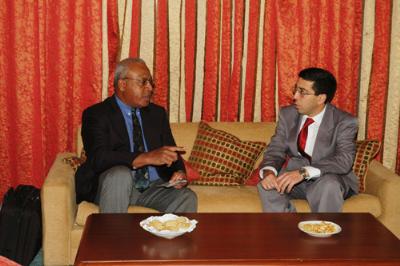
Muddy roads of Fiji.
Posted by Picasa
Stuck in Fiji Mudwould like to point out
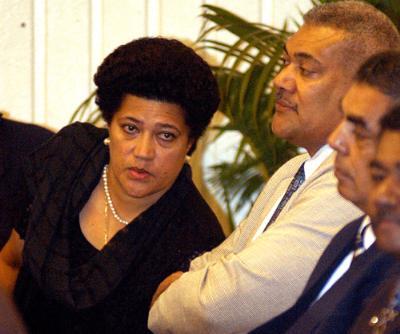
It is unfortunate that Fiji media continue to give him, the time of the day.
Stuck in Fiji Mud identifies with the Fiji Tourism Resource Owner Association's sentiments.
Their recent conference titled: "Cry of the Land" has identified many areas that are directly linked to N.L.T.B's price-mongering and obnoxious way of conducting business; which continues to chain Fiji's indigenous community in poverty.
Then the crafty Politicians with agendas subsequently incite the racial overturns in Fiji; for their own advancement.

Stuck in Fiji Mud is adamant that these Traditional Fishing grounds in Fiji; should be administered by the Native family units. Not another institution.
If the Great Council of Chiefs thinks otherwise; then that archaic institution; are the greatest stumbling block for social mobility in Fiji. Deriving from the independence declaration statement-if any institution becomes a menace and a tyrant; they should be forcibly removed.

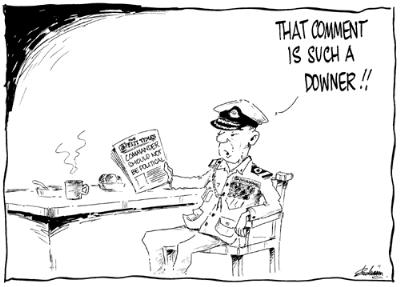
As a result, Justice is denied in Fiji; by the conflict of individuals with an extra-large Ego and those who carry a huge chip on their shoulders. Very dangerous combination indeed!
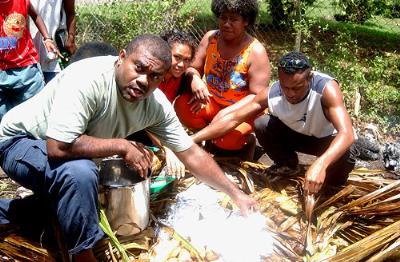

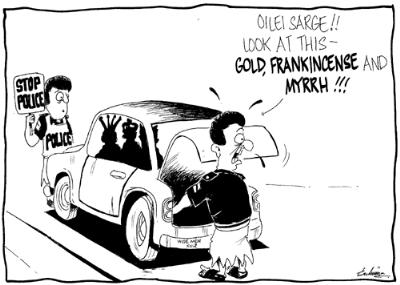
Stuck in Fiji Mud wishes every citizen of the Planet Earth -Peace and Merry Christmas.


Stuck in Fiji Mud will continue to express attention on their dubious history. Keeping in mind their astronomical poundage rate of 25%.
That poundage can be eliminated altogether if, N.L.T.B is transformed into a Regulating body than their carte blanche decision making that has kept Fijians in the doldrums of ignorance.
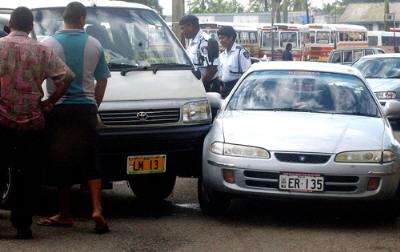
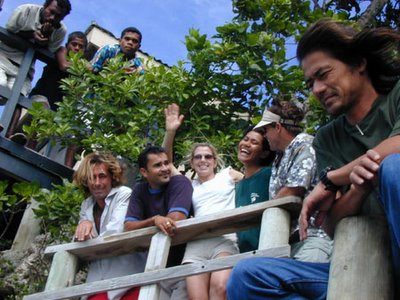

Stuck in Fiji Mud believes that Messr Bainimarama is being victimized by the layer of Old Farts within Fiji Public Service Commission for opposing the passage of the controversial R.T.U Bill in Fiji Parliament.
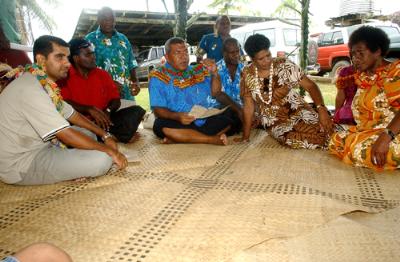
The argurement of ALTA vs NLTA is the biggest Red-Herring at the expense of social mobility in Fiji.


It is prudent that these Indigenous Pressure Groups in Fiji should really focus their concerns on stopping the rape of their ancestral land by the policies of Native Lands Trust Board and not dwell on the workable framework of Fiji's judiciary system.


Stuck in Fiji Mud calls on the relevant authorities to reign in these elements of danger; especially in light of Fiji Elections 2006.Fiji Government should acnowledge that Indigenous people in Fiji are being held captive by archaic laws which is the very catalyst for unrest in Fiji, suggests National Allicance Party of Fiji.



I guess they are one and the same entity.
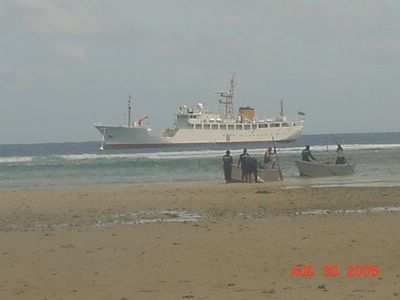

However the agency must also scrutinize Fijian framework of native administration and also facilitate the passage of Freedom of Information Laws in Fiji. Nothing else will suffice.




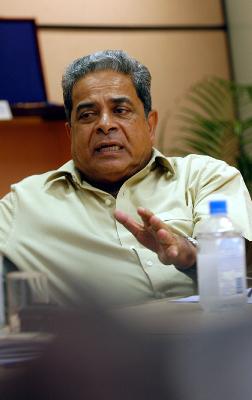

Where is the Great Council of Chiefs, who are the self proclaimed guardians of Fijians?
Merchants of malice
IT is only fitting that such a well-written and topical article (Merchants of malice 7/12) invite much reaction but I notice hardly any from those who really should.
In societies, we have misrepresentations of all sorts, some of which become entrenched unless corrected.
Our country has faced the same for decades, the bogey of the kai India. The onus is on us to rise above such triviality and seize the day with facts and truth, so we serve our nation better. We have relied heavily on these hardworking sons and daughters of Fiji.
One of our last knighted citizens, Sir Vijay Singh, who served the country for decades in many roles and who reaped as much praise as controversy in some circles, has spoken the truth based on truth and nothing in the article can be further from the truth.
For that, we are grateful as a whole, for that understanding can set us free.
Twice before, we missed the golden opportunity to steer our nation back to the straight and narrow when the 1987 and 2000 coups took place.
But the honourable house of the Great Council of Chiefs in both cases took a different path.
The commoners and others had looked for guidance and wisdom but instead received blinkered partisanship which has not done our republic any credit.
Being the topmost indigenous institution, one would expect higher level of leadership than mere rhetoric or nationalism.
Another GCC meeting has passed and though there were promises from the opening speeches of the chairman, the meeting soon became mired into who to blame for the lack of more ready cash from the resources of the indigenous-held properties.
The coup culture that permeated us with a "handout mentality" is visible even in the highest Fijian circles — what with scams and affirmative actions.
Great leaders should exhort their citizens like the American pioneer days of "Go West, Young Man" or the famous JFK quotation of "Ask not what your country can do for you ..."
Vast swaths of our islands remain idle and untapped with promises of resources rich.
Once productive tracts of agricultural lands revert to fallow while so-called "reserves" remain blocked "assets" for everyone, least of all the future generation of the indigenous.
Jonetani Rakivi
Nadi

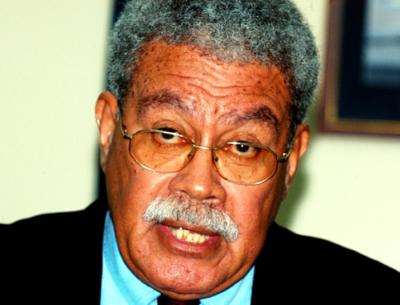

It is obvious the land tenure system in Fiji must change.
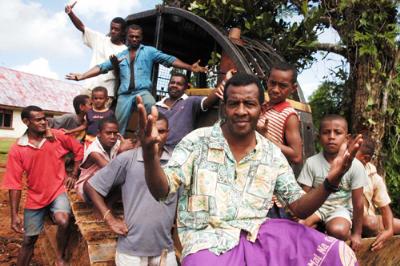



The success of the Fijian Courts will depend on the commitment of all villagers. The Government supports the idea of the Fijian Court system or the dual court system.
The Fijian Court, abolished in 1967, was the enforcement arm of the Fijian administration and consisted of the Tikina Courts and the Provincial Courts.
They were respectively established under section 16 and 18 of the Fijian Affairs Act cap 120.
They administered the Criminal Offices Code, Lawa i Taukei, the Fijian Affairs (Appeals) Regulations, the Fijian Affairs (Courts) Regulations, the Fijian Affairs (Extramural Punishment) Regulations, the Fijian Affairs (Provincial Councils) Regulations, the Fijian Affairs (Interpretation) Regulations and the Provincial (Public Health) Villages) by-laws of each province.
Each tikina had a court with a native magistrate. Compliance with the regulations was overseen by the administration head of the tikina (Buli), supported by provincial enforcement officers (ovisa ni yasana).
The abolition of the regulations and dismantling of the Fijian Courts in 1967 followed changes in policy concerning the Fijian Administration.
It was decided that the entire system needed to be reviewed to allow Fijians to be part of the mainstream rather than developing separately.
It was also apparent that social changes among Fijians such as improving and increased levels of education and urbanisation had brought different attitudes no longer content with quiescent communalism.
The Cole Report of September 1984 (Parliamentary Paper No 56 of 1985) recommended the consideration of the revival of the Fijian Courts and the Regulations.
The basis of the review was that:
“If there is to be more effective provincial administration down through the tikina to the village this must be reflected not merely by the structures of representation in the councils of the people and the administration but also in the system by which law and customs are communicated and maintained.”


 A form of religous segregation with terrorism laced purposes that obviously impinges on the constitutional rights. Nothing new especially when Parliamentry proceedings of investigations take the slow boat to China. The financial position of Fiji's only super annuation scheme ( Fiji National Provident Fund) has relinquished the fiduciary interests of their registered members and has superceeded those rights with Fiji Government's unbridalled thirst for money and corruption, within the ranks. This Fiji Live article explains the reason of how the income of a nation via taxes will require greater scruntiny, as such attracts internal resistance.
A form of religous segregation with terrorism laced purposes that obviously impinges on the constitutional rights. Nothing new especially when Parliamentry proceedings of investigations take the slow boat to China. The financial position of Fiji's only super annuation scheme ( Fiji National Provident Fund) has relinquished the fiduciary interests of their registered members and has superceeded those rights with Fiji Government's unbridalled thirst for money and corruption, within the ranks. This Fiji Live article explains the reason of how the income of a nation via taxes will require greater scruntiny, as such attracts internal resistance.FIRCA stands by tax secrecy provision
Tuesday December 06, 2005
The Auditor-General does not override the secrecy provisions of the Income Tax Act and the Value Added Tax decree, says the Fiji Islands Revenue and Customs Authority.
The authority today set the record straight saying that the assertion was rejected by FIRCA and this decision had been made known to the Auditor-General.
FIRCA chief executive Tevita Banuve said the Auditor-General did neither in the past or present have such a right, having regard to the provisions of the two acts administered by the authority.
"Taxpayers confidentiality is at the very heart of the tax system and without the strict maintenance of same, the very foundation of the tax base is imperiled," he said.
"This is the pattern in every civilised state. FIRCA, which forces taxpayers to divulge sensitive personal information, is under a strict duty to maintain confidentiality of same.
"The entire basis upon which the revenue laws are administered is undermined if taxpayers cannot rest secure that FIRCA will respect the secrecy of their personal affairs," Banuve said.
Referring to statements made by the Auditor-General Eroni Vatuloka in public that the situation was same with Reserve Bank of Fiji, Banuve said RBF access, such is specifically provided for within the Income Tax Act itself and the collaborative statutory arrangement between FIRCA and RBF, is essential to the functioning of the tax system.
Banuve said the authority was not obstructing access.
Fijilive

Parliamentary debate
I AGREE with S. Tuiteci's suggestion to televise parliamentary proceedings on a dedicated channel (FT 3/12).
In the US, there are two cable channels C-SPAN and C-SPAN 2 which run daily proceedings of the US Congress.
They also run proceedings of the British House of Commons, book reviews and public speaking engagements in educational programs.
I think the benefit from such a channel would be tremendous. People will be able to follow the proceedings, the conduct and contribution of elected officials and judge for themselves.
When Parliament is not in session, the station could buy and run tapes of the US and UK parliamentary debates.
It will help students of politics and politicians learn from the eloquent techniques of their overseas counterparts.
As for funding the station, political parties can buy time slots to advertise their messages for the coming election.
Book reviews on the channel could help generate interest in reading and raise the standard of literacy. It will also give authors a platform to advertise their work.
I sincerely think the government should invest in such a worthwhile venture, since it owns much of Fiji TV.
Praneet Singh
Sacramento
What a week
WHAT a week we had the chairman of the Great Council of Chiefs correctly pointing out how many Fijians wrongfully live below the poverty line. We have seen our elected representatives on both sides of the house acting more like performing seals than the politicians we elected them to be.
We have a stalemate on the land issue which benefits no one, least of all the landowners.
The Leader of the Opposition wants more Talanoa talks, even though he appears to have reneged on agreements that were made in past Talanoa sessions.
The Prime Minister continues to place ads in the newspaper to justify his position, which probably pleases the newspaper owners and his professional speech writer, but achieves very little in real terms.
Frankly, the people's representatives on both sides of the House should be ashamed of themselves.
Only a few of them are worth a fraction of the salary and expenses they draw.
They spent the past four years looking after their own interests first before the country and we will benefit if they sought alternative employment.
It is probably futile to hope that the next government and Opposition party will understand the value of land management and that land which lies fallow, like the 6000 terminated leases and surplus land the PM refers to, is worthless.
It benefits no one and does nothing to lift people from below the poverty line.
The Government should realise that a country's most important asset is the people and it is impossible to spend too much on education, starting at home and at pre-school.
It is the only way to lift a race out of poverty.
It's a pity that leaders of today do not realise that being driven at high speed in a four-wheel-drive with tinted glass gives them little vision.
But then, the four-wheel-drive is the status symbol they all aspire to a shame, really.
Rick Rickman
Lautoka


